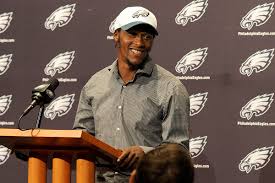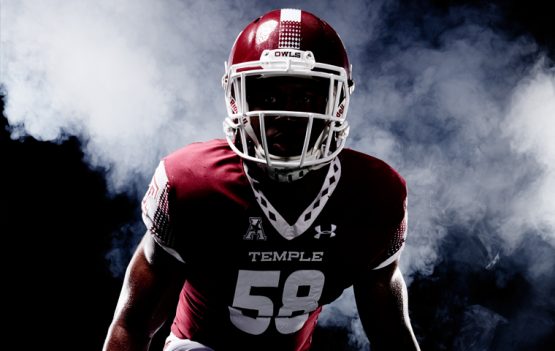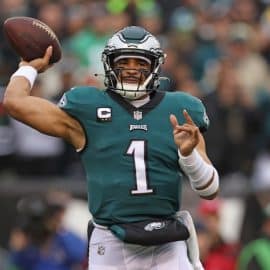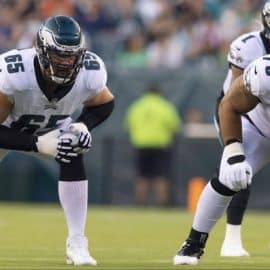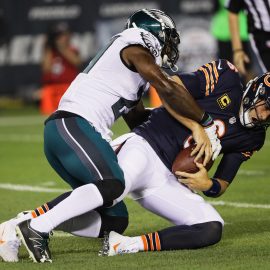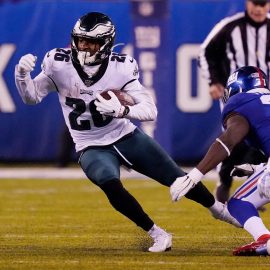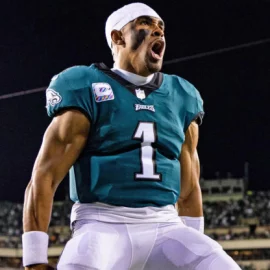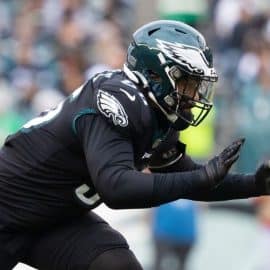Leodis McKelvin was the first Eagles alumnus of 2016 to get cut for money reasons— there will be more. At least McKelvin understands the business side of pro football. Reportedly he anticipated the hatchet and took it in stride.
Meanwhile in Green Bay veteran cornerback (and Eagles nemesis) Sam Shields had a bitter reaction to his release by the Packers:
Sam Shields blasts Packers on Instagram after releaseby Matt Birch |
“Cornerback Sam Shields was released by the Packers today, but it seems that he wanted to go out on his own terms, and was upset at the team for pulling out the rug from underneath him, after spending the entirety of his career with the team.
“Shields, who has battled through some concussions over the last few years, was placed on injured reserve back in October and missed the majority of the season.
“He made $8.87 million in 2016, and will make $3.125 million next season (signing bonus), even after being released. Shields, however, was not happy that Packers did not allow him to announce his retirement, and instead cut him before he could do that. He took to Instagram and posted a flurry of angry hashtags about it.”
Unlike Sam Shields, Leodis McKelvin understands first and foremost that pro football is a business. It’s a “what have you done for me lately?” kind of reality. Grim indeed, since loyalty and cash collide constantly.
McKelvin joined the Eagles last offseason when he was signed as a free-agent after playing eight seasons with the Buffalo Bills. The Eagles signed McKelvin on a two-year deal worth $6.2 million with $3 million guaranteed. With the release, the Eagles will save $3.2 million in cap space.
“During his lone season with the Eagles, McKelvin recorded 43 total tackles, and grabbed two interceptions. Upon his signing, it was believed the 31-year-old would solve the Eagles’ woes at the cornerback position, but a disappointing season saw his price tag become much higher than what the Eagles were getting for his production.”—Matt Brown
McKelvin will land on his feet somewhere in the NFL. Not completely joking here, but what are the odds he lands in New England?
Another grim side of releasing a veteran like McKelvin is the inevitable bad-mouthing that comes from the front office to justify the move.
“I think you look at the cornerback position and what we’ve done at the cornerback position is put Band-Aids on things,” Eagles G.M. Howie Roseman said.
That may be true—but at the time McKelvin was signed last year Roseman was singing a different tune.
Roseman seemed genuinely excited when McKelvin came to Philadelphia to reunite with Jim Schwartz, who coordinated the Bills’ defense in 2014. Unfortunately the real Band-Aid problem was the one needed to be applied to the player himself. The 31-year-old McKelvin suffered a hamstring injury in the season opener against the Browns and missed three of the next four contests. His play was erratic the remainder of the year, but he still led the Eagles with 20 pass breakups and recorded two interceptions.
So much for the old college try and playing through injury.
Another grim reality—with McKelvin gone and Nolan Carroll likely to be gone as an unrestricted free agent in March, the Eagles will go into the 2017 season minus their two best starting cornerbacks from last year. Nolan Carroll and Leodis McKelvin combined to make 28 starts in 2016.
When you blow up the continuity of your perimeter defense at the cornerback position, you are basically gambling that things could not get any worse at that position going forward.
Wrong.
Things could get worse—a lot worse. The Eagles pass defense was a top-five unit through the first half of the season in 2016. It was pretty good until a combination of factors (injuries, questionable backup depth, a softening pass rush and smart adjustments by opponents) started burning the Birds’ secondary with big chunk plays. The Eagles allowed 57 pass plays of 20 yards or more (sixth worst in the league) and nine touchdowns of 20 yards or more last season.
So sure, blame McKelvin and Carroll if you must. But who can you honestly say with certainty is going to replace them as starters and do any better?
Jalen Mills? Dwayne Gratz?
NFL analyst Greg Cosell thinks the main problem with the Eagles’ cornerback performance last season was the defensive lack of consistent pressure on opposing quarterbacks with a 4-man rush:
“They don’t have that true edge rusher that my sense is offenses say, ‘We need to take care of that guy.'” Cosell said. “”Ultimately, in this league, if you talk to most coaches, they’ll tell you that you want to affect the quarterback,” he said. “You need to speed the quarterback up. You need to make him uncomfortable. It makes your pass defense immediately more effective.”
Cosell’s observation is a grim reminder that sometimes cornerbacks pay the price for the shortcomings of the front four’s performance. In that sense you could say McKelvin’s release is less of a personal failure, and more like an accidental shipwreck. They don’t call it being out on an island for nothing…
Add The Sports Daily to your Google News Feed!
